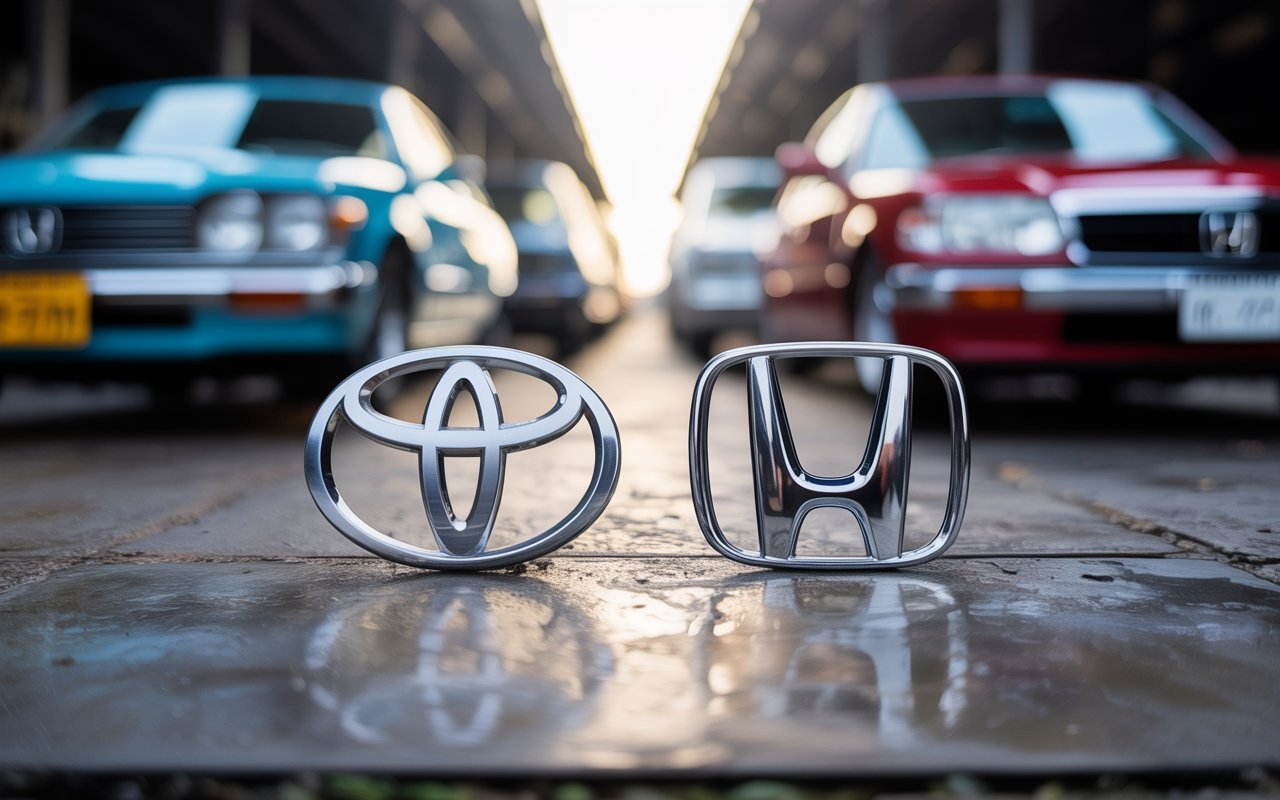When shopping for a car, Toyota vs Honda reliability is one of the most common debates among drivers. Both brands have decades of reputation for making dependable vehicles, and both enjoy loyal followings around the world. Yet, when it comes down to ownership costs, longevity, and peace of mind, many buyers still wonder: which one is truly more reliable?
In this guide, we’ll compare reliability ratings, long-term maintenance, engine durability, and popular models from each brand to help you decide which one fits your needs best.
What Does Reliability Mean in Cars?
Reliability in vehicles refers to how consistently a car performs without unexpected breakdowns or expensive repairs. A reliable car should keep running smoothly with only routine maintenance like oil changes, brake replacements, and tire rotations. The longer a vehicle goes without major mechanical failures, the more reliable it is considered.
Toyota and Honda both have strong reputations in this area, but they take slightly different approaches. Toyota tends to focus on tried-and-true engineering, while Honda often prioritizes performance and innovation. These philosophies explain some of the differences we see in their long-term dependability.
Visit Jamiekime for more latest updates
Toyota vs Honda Reliability in Industry Rankings
Independent studies are one of the clearest ways to measure how the two brands stack up. Consumer Reports frequently ranks Toyota among the top three most reliable automakers, while Honda usually lands within the top ten but rarely as high. Similarly, J.D. Power’s dependability studies often show Toyota outperforming Honda by a wide margin.
Longevity studies add even more evidence. According to research from iSeeCars, six of the ten longest-lasting vehicles on the road today are Toyotas, compared with just two from Honda. That means Toyota vehicles are more likely to reach 200,000 miles or beyond without major issues.
The data makes one thing clear: Toyota consistently comes out ahead in the long-term reliability race.
Engine Reliability: Toyota vs Honda
Both brands are admired for their engines, but there are differences in philosophy. Toyota continues to rely on naturally aspirated engines that emphasize durability over speed. These engines are less flashy but are known for running strong even after years of heavy use.
Honda, on the other hand, is famous for engines that deliver a sporty and responsive drive. However, in recent years, Honda’s shift toward turbocharged engines has raised concerns. While these engines provide more power and efficiency, some drivers report that they are not as long-lasting as Honda’s older, simpler engines.
If your priority is maximum longevity, Toyota edges out Honda here. But if you want a balance between performance and dependability, Honda remains appealing.
Safety and Reliability Combined
Safety is another factor that ties closely to reliability. After all, a dependable vehicle should also keep its passengers secure. Toyota has frequently earned high marks in this category. For example, the Toyota Corolla received the Top Safety Pick+ Award from the Insurance Institute for Highway Safety. Honda vehicles also perform well, but certain models have fallen short due to issues such as headlamp performance.
Toyota tends to introduce advanced safety features gradually, ensuring they work consistently before becoming standard across the lineup. Honda is quicker to roll out new technology, which can sometimes mean minor issues early on. Both approaches have advantages, but Toyota’s method typically results in fewer reliability complaints.
Comparing Popular Models
Compact Sedans: Corolla vs Civic
The Toyota Corolla is known as a practical and dependable choice. It delivers solid fuel efficiency and is one of the longest-lasting compact cars on the market. The Honda Civic, meanwhile, offers a sportier feel and sharper handling, making it more fun to drive. While both are reliable, the Corolla often lasts longer with fewer mechanical complaints, whereas the Civic appeals more to those who value performance.
Midsize Sedans: Camry vs Accord
When comparing the Toyota Camry and Honda Accord, reliability again plays a big role. The Camry has a long track record of dependability and comes with slightly more horsepower in its base engine. The Accord, however, provides a roomier interior and better fuel economy, making it an excellent family car. While both sedans are strong choices, the Camry tends to offer greater peace of mind for long-term ownership.
SUVs: RAV4 vs CR-V
SUVs are among the best-sellers for both brands. The Toyota RAV4 is praised for its rugged dependability and variety of hybrid options. The Honda CR-V, by contrast, feels more upscale inside and includes more standard features, making it a comfortable daily driver. In the long run, though, the RAV4 has slightly better reliability scores, while the CR-V wins on comfort and convenience.
Most Reliable Toyota Models
Several Toyota models stand out for exceptional longevity. The Toyota Land Cruiser has a reputation for surpassing 200,000 miles with ease, while the 4Runner and Sequoia are also among the most durable SUVs on the market. Sedans like the Toyota Avalon and hybrids like the Prius consistently score high for dependability. Even Toyota’s trucks, the Tacoma and Tundra, are well-regarded for lasting longer than many competitors.
Most Reliable Honda Models
Honda may not dominate the reliability charts the way Toyota does, but it still produces some long-lasting vehicles. The Honda Ridgeline is one of the most dependable midsize trucks, and the Honda Odyssey is recognized as one of the most reliable minivans available. These models prove that Honda remains a strong contender in specific segments.
Maintenance Costs Over Time
Another way to compare Toyota vs Honda reliability is by looking at maintenance costs. Over the first ten years of ownership, Toyota owners spend an average of about $6,000 on maintenance, which is among the lowest in the industry. Honda is close behind, averaging around $7,500 over the same period.
This difference may seem small, but it reflects Toyota’s more conservative approach to technology. By introducing features gradually, Toyota reduces the risk of expensive repairs caused by untested systems. Honda’s more innovative strategy can mean higher costs if new tech encounters issues.
Tips for Maximizing Reliability
Whichever brand you choose, proper care makes a big difference in how long your vehicle lasts. Sticking to regular maintenance schedules, using quality fluids and parts, and addressing small issues early all help extend the life of your car. Driving smoothly and avoiding harsh acceleration or braking also reduces wear and tear.
Final Words
The debate over Toyota vs Honda reliability often comes down to priorities. Toyota consistently ranks higher in long-term dependability, lower maintenance costs, and resale value. Honda, while still very reliable, focuses more on performance and comfort, sometimes at the expense of durability.
If your goal is to own a car that will last the longest with minimal issues, Toyota is the clear winner. If you value a sporty drive and innovative features, Honda offers excellent choices. In the end, both brands provide dependable vehicles—it just depends on whether you want the safe bet of Toyota’s proven reliability or the balanced approach of Honda’s performance and practicality.
Common Questions
Is Toyota more reliable than Honda?
Yes. Multiple studies and owner surveys consistently show Toyota outperforming Honda in both long-term dependability and maintenance costs.
Do Hondas last as long as Toyotas?
Many Hondas last well over 150,000 miles, but Toyotas are more likely to exceed 200,000 miles without major repairs.
Which brand has better resale value?
Toyota generally holds higher resale value thanks to its reputation for longevity, though Hondas also perform well in the used market.
Are Toyota or Honda hybrids more reliable?
Toyota hybrids, like the Prius and RAV4 Hybrid, have a longer track record and tend to be more dependable than Honda’s newer hybrid offerings.





